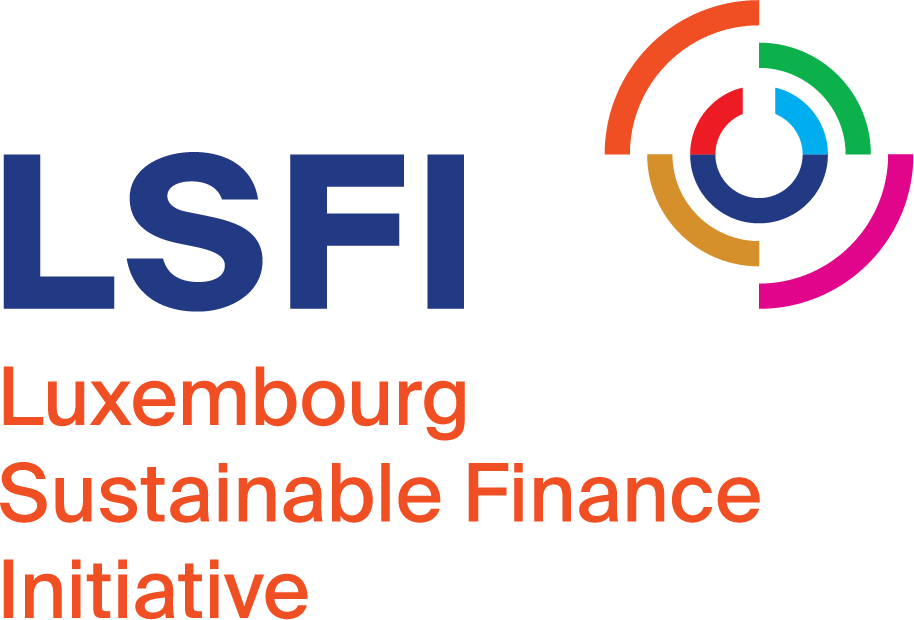Sustainable finance requires a full set of specific skills. While the sustainable finance training offering has boomed over the last years, you might ask yourself: how can I find a suitable training course? Further, as research around the topic gets more attention, you might also wonder how research could impact or enrich your practice.
This month, to give you some insight on these topics, we discussed with Michael Halling, the newly appointed Chair in Sustainable Finance at the University of Luxembourg. Michael also shared with us what brought him to sustainable finance, what the main challenges are and where the University of Luxembourg stands.
LSFI: The University of Luxembourg is developing its sustainable finance expertise and offering with its master’s track, the newly launched Chair and the Certificate. What brought you to this, and what are the main challenges you have identified so far?
Michael Halling: I got interested in the area of Sustainable Finance around seven years ago. My first contact with this topic was through discussions with friends who worked at a mutual fund and asked me for advice on how sustainability considerations might affect their quantitative asset management strategies. We ran some empirical analysis, looked into the existing literature and had several rounds of intense debate. During that process, I realized that this topic is meant to stay and poses many important, challenging and academically intriguing questions. Since that point in time, I am hooked on the topic, do research in it, and teach it at various levels. When I joined the University of Luxembourg around a year ago, I was truly excited to get the chance to be part of the University’s initiative in Sustainable Finance.

Michael Halling – Sustainable Finance Chair at the University of Luxembourg
Currently, there are three main challenges that we are focusing on. The first one is to establish an environment within the research program in Sustainable Finance that allows all members of the group, academic faculty as well as PhD students, to work on their research in Sustainable Finance productively. In that respect, one particularly important aspect is the creation of a comprehensive and up-to-date database of ESG-related data, such as ESG-scores or emissions data at the firm and the investment fund level for a global universe of entities.
The second one is to get all stakeholders involved (policymakers, governmental agencies, and representatives of the Luxembourg financial industry). This requires that we create events, such as the joint webinar series with the LSFI, conferences and other frameworks in which we meet our stakeholders to discuss pressing issues in this field and foster dialogue.
The third challenge is to bring together academic institutions in Luxembourg that work in Sustainable Finance. As is well-known, sustainable finance is a very interdisciplinary topic that, in addition to finance, is related to law and regulation, disclosure and reporting, natural sciences and digitalization, among other things. Collaborations within the faculty of finance, law and economics at the University of Luxembourg are already working well. We are also talking to other academic players and stakeholders in Luxembourg to establish a joint platform in Sustainable Finance.
Training courses, certification, master’s degrees, etc. on sustainable finance have been flourishing in the past few years. This is a positive development considering the training needs in this field. However, it can be difficult for a student or professionals to identify which one(s) to follow. In your opinion, what should be the selection criteria to find a solid training in sustainable finance?
This is an excellent question and I agree that there is no lack of teaching programs in Sustainable Finance at the moment and that the selection might be difficult for students or professionals. To me, the most important aspect to keep in mind – not surprisingly – is academic quality. This includes the reputation and credentials of the organizing institution, for example, “Is the program offered by an accredited university with a track-record in teaching or by another organization?”. Also, the qualification of the teaching staff, for example, “are most teachers in the program part of the academic faculty or external teachers?”. Ideally, one would even look at the research activities and CVs of the teachers. If these teachers also do research in Sustainable Finance, it becomes more likely that they will have something interesting and novel to say. In the end, I truly believe that excellence in research leads to excellence in teaching.
You are a Professor of Finance, coordinating the Chair in Sustainable Finance at the University of Luxembourg. You are also part of the teaching team of the Certificate in Sustainable Finance under this Chair. What is the main knowledge gap that you have identified (among your students) so far in the sustainable finance field? Is the current sustainable finance education offer enough to fill this gap? How is the University of Luxembourg positioning itself?
I don’t think there is one specific or main knowledge gap. Sustainable finance is challenging because it is a new topic – for example, there are no textbooks available to follow in a course. It is a quickly changing and evolving topic and, thus, teachers and professionals in this area need to work hard to stay up-to-date. It is also an interdisciplinary topic, hence, when you talk about climate risk, you quickly get into topics that require some fundamental knowledge about climate-related aspects.
I think the current offerings in Sustainable Finance by the University of Luxembourg address the above challenges well. Both the dedicated track in the master program and the certificate for professionals are specifically designed to address these challenges. Of course, we will have to collect more students and participants’ feedback to evaluate and assess whether we are delivering on this promise.
The current offering of Sustainable Finance related teaching programs shows the University’s ambition to take a leading role in this area. And, I think rightly so. It is one of the most important goals of the Chair and Research Program in Sustainable Finance to ensure that the University offers a comprehensive, state-of-the-art, research-oriented and top-quality educational offering in the area of Sustainable Finance. I think we have already come a long way regarding this goal, but at the same time we are continuing our efforts to further fine-tune and optimize our courses.
“Sustainable finance is challenging because it is a new topic – for example, there are no textbooks available to follow in a course. It is a quickly changing and evolving topic and, thus, teachers and professionals in this area need to work hard to stay up-to-date.”
How would you like the Chair to be connected to the financial sector? How would you like this relationship to evolve and what would you put in place to do so? Are you also considering connecting with other sustainable finance research centres in Luxembourg or Europe?
As mentioned before, it is one of the explicit goals of this initiative to interact extensively and regularly with the financial sector. One way to achieve this goal is to organize outreach events. This is something we have already done quite extensively in the first year of the initiative and we will continue to do so in the future. Almost all the events have been virtual but we hope that this year more will take place in person. While online events are working fine in terms of information dissemination, they don’t work well in terms of networking and informal exchange of ideas and thoughts. However, this latter part is also very important to get a better idea of pressing issues in the financial sector and to start a dialogue with representatives of the financial sector.
We are also interested in collaborating with other research centres in Europe. We already have good contacts with similar initiatives in Sweden. Before joining the University of Luxembourg, I was a professor at the Stockholm School of Economics where I led a centre in Sustainable Finance. I am still in close touch with people there and, hopefully, we will be able to establish a collaboration between the two centres in the future.
As a Finance scholar, what are your areas of focus with respect to sustainable finance & how it could support the development of this area in practice? From your standpoint, how much can finance contribute to the transition of our economies towards more sustainability?
My main areas of research in Sustainable Finance are related to asset management, socially-responsible investment strategies and ESG-related risk management. For example, I am studying the interaction between ESG-related characteristics of bond issuing firms and the pricing of those corporate bonds in primary bond markets. I am also interested in studying how mutual funds are responding to the challenges and opportunities in Sustainable Finance. Issues such as “greenwashing” or the fees of sustainable investments come to mind. Ultimately, I would like to better understand to what extent socially-responsible investment strategies have an impact on the underlying firms and induce change at these firms. This is also related to your next question.
I think that finance can and will have to contribute a lot to the transition of our economies towards more sustainability. How precisely this will happen and what will be the best, meaning most effective, way to achieve this transition is less obvious to me. I am sceptical that simple filter-based investment strategies such as funds that exclude investments from certain industries will play an important role in the transition. On the other hand, while I am convinced that financial markets will play an important role in the transition, I doubt that market-based solutions alone will be sufficient to fuel the transition. In some situations – for example, in the case of the transition away from fossil fuels – carefully thought-out regulation and sensible policy intervention might be required because action needs to be taken more quickly than financial markets would be able to deliver.





